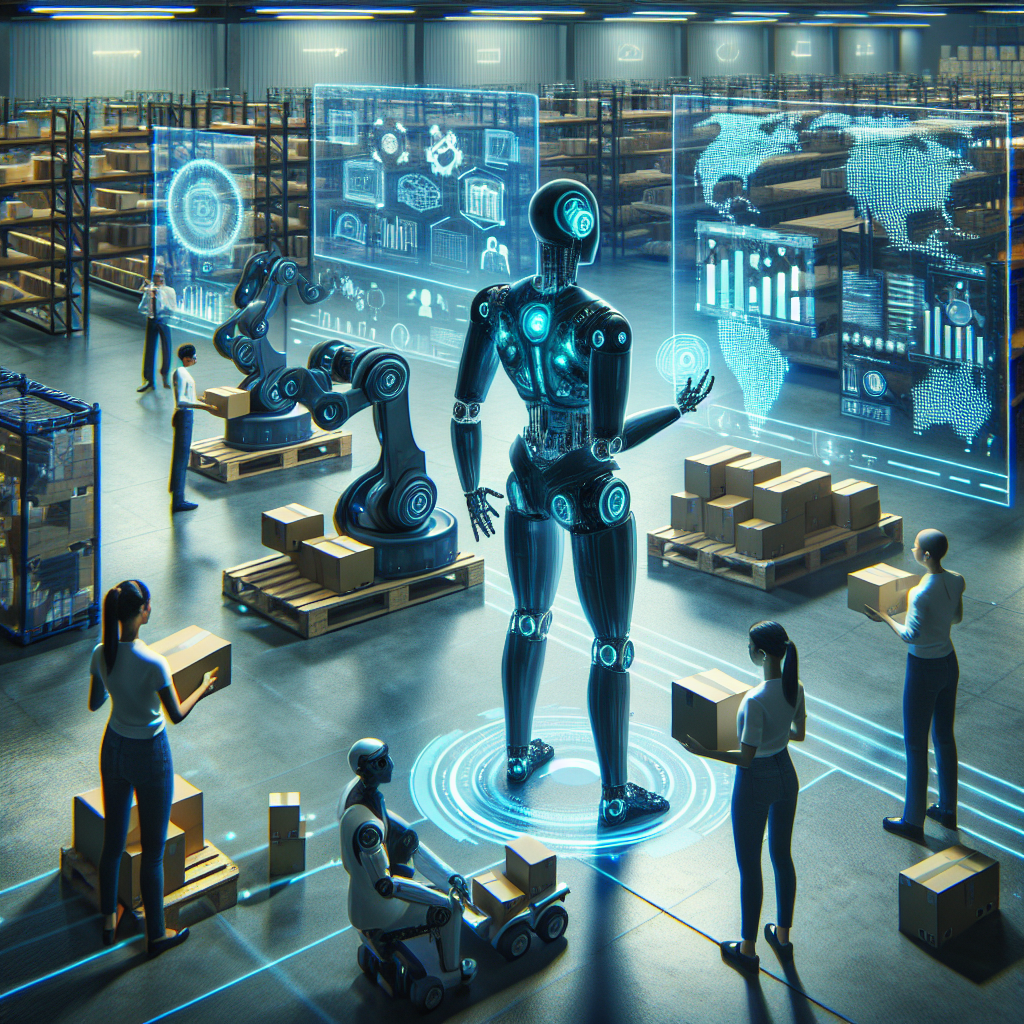The Future of AI-Powered Supply Chain Collaboration in Logistics
In recent years, artificial intelligence (AI) has been transforming the way businesses operate across various industries. The logistics sector is no exception, with AI-powered technologies revolutionizing supply chain collaboration and management. As the demand for faster, more efficient, and cost-effective logistics solutions continues to grow, companies are increasingly turning to AI to streamline their operations and improve overall efficiency.
AI-powered supply chain collaboration involves the use of advanced algorithms and machine learning to optimize various aspects of the supply chain, including inventory management, route optimization, demand forecasting, and more. By harnessing the power of AI, companies can make smarter decisions, automate repetitive tasks, and gain valuable insights into their operations.
One of the key benefits of AI-powered supply chain collaboration is improved efficiency. AI algorithms can analyze vast amounts of data in real-time and identify patterns and trends that may not be immediately apparent to human operators. This allows companies to make more informed decisions and optimize their operations for maximum efficiency. For example, AI can help companies predict demand fluctuations, optimize inventory levels, and reduce lead times, all of which can lead to significant cost savings and improved customer satisfaction.
Another key advantage of AI-powered supply chain collaboration is enhanced visibility and transparency. By leveraging AI technologies, companies can track the movement of goods in real-time, monitor inventory levels, and identify potential bottlenecks or disruptions in the supply chain. This level of visibility allows companies to proactively address issues before they escalate, reducing the risk of delays and ensuring smooth operations.
AI-powered supply chain collaboration also enables companies to improve collaboration with their partners and suppliers. By sharing real-time data and insights, companies can work together more effectively to optimize their supply chains, reduce costs, and improve overall performance. This level of collaboration can lead to stronger relationships with partners, increased trust, and ultimately, better business outcomes.
Looking ahead, the future of AI-powered supply chain collaboration in logistics is promising. As AI technologies continue to evolve and become more sophisticated, companies can expect to see even greater benefits from implementing AI in their supply chain operations. Some key trends to watch for in the coming years include:
1. Autonomous vehicles: AI-powered autonomous vehicles are already being used in the logistics industry to transport goods more efficiently and safely. As the technology matures, companies can expect to see increased adoption of autonomous vehicles for last-mile delivery and other logistics tasks.
2. Predictive analytics: AI-powered predictive analytics can help companies forecast demand more accurately, optimize inventory levels, and identify potential risks in the supply chain. By leveraging predictive analytics, companies can make smarter decisions and proactively address issues before they impact operations.
3. Blockchain technology: Blockchain technology has the potential to revolutionize supply chain collaboration by providing a secure and transparent way to track the movement of goods and verify transactions. By combining AI with blockchain technology, companies can create a more secure and efficient supply chain ecosystem.
4. Robotics and automation: AI-powered robotics and automation are already transforming warehouse operations by increasing efficiency and reducing labor costs. As the technology advances, companies can expect to see greater adoption of robotics and automation in other areas of the supply chain, such as order fulfillment and inventory management.
In conclusion, AI-powered supply chain collaboration is poised to revolutionize the logistics industry in the coming years. By harnessing the power of AI technologies, companies can optimize their operations, improve efficiency, and enhance collaboration with their partners and suppliers. As AI continues to evolve and become more sophisticated, companies that embrace AI-powered supply chain collaboration will be better positioned to succeed in an increasingly competitive and complex business environment.
FAQs:
Q: How can AI help improve supply chain collaboration in logistics?
A: AI can help improve supply chain collaboration in logistics by analyzing vast amounts of data in real-time, identifying patterns and trends, and optimizing various aspects of the supply chain, such as inventory management, route optimization, and demand forecasting. By leveraging AI technologies, companies can make smarter decisions, automate repetitive tasks, and gain valuable insights into their operations, leading to improved efficiency and collaboration.
Q: What are some key benefits of AI-powered supply chain collaboration?
A: Some key benefits of AI-powered supply chain collaboration include improved efficiency, enhanced visibility and transparency, and better collaboration with partners and suppliers. AI can help companies optimize their operations, reduce costs, and improve customer satisfaction by analyzing data, identifying trends, and making smarter decisions in real-time.
Q: What are some key trends to watch for in the future of AI-powered supply chain collaboration?
A: Some key trends to watch for in the future of AI-powered supply chain collaboration include autonomous vehicles, predictive analytics, blockchain technology, and robotics and automation. These technologies have the potential to revolutionize the logistics industry by increasing efficiency, reducing costs, and enhancing collaboration with partners and suppliers. Companies that embrace these trends will be better positioned to succeed in a rapidly changing business environment.

